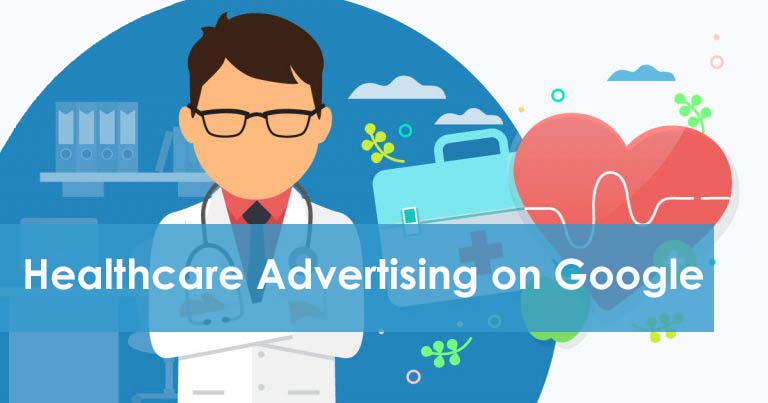Google is a tool that many people use to search for health information, local medical practices, and information about medical procedures. These people usually are searching for these things for a reason, and it may be that they’re looking for a business or practice like yours.
Although healthcare advertising is restricted in general, Google allows for healthcare providers to advertise on their network. Here’s a short guide on how you can advertise to searchers on Google.
How Does Google Advertising Work?
Google ads (formerly Google Adwords) describes a wide variety of advertising options offered by Google. This includes Google Search ads, Google Display Network ads, YouTube, Google Search Partner Network ads, and more. Google Search ads will be the focus of this article, as they are the most beneficial for most healthcare businesses whose goal is to generate patient leads.
You buy Google Search ads by bidding on ad space for search search keywords. For example, if you’re a bariatric clinic in Maryland and you want to reach people looking for you, you might choose a keyword like “maryland bariatric surgery”. Then, your ad will be put into an auction, and if it wins the auction, it will show when someone searches “maryland bariatric surgery” or some other similar search with those keywords.
You can change match types so that your ad shows only for specific keywords.
When you buy Google ads, you’re bidding for an ad click. You are only charged by Google if someone clicks on your ad. The more you bid, the higher in the ad search results you’ll be.
Tips for Healthcare Advertising on Google
Keyword research
The success of your campaign depends on how well you’ve done your keyword research. Good keywords are keywords that are highly relevant to your business and show some sort of intent. There are a lot of keywords you could choose from, but some are better than others.
Keywords with buying intent, for example “medical parts wholesale” or “medical equipment for sale” which indicate that the searcher is looking for someone who sells medical parts or equipment, are the most valuable keywords to target. They’re also the most expensive, as many people are bidding on them.
Location-based keywords are great because they not only narrow down what a searcher is looking for, but because they show intent. They’re looking for your business’s location, which indicates they’re looking to visit.
Keyword research is a subject of its own, so dive into Google’s Keyword Planner tool and look for keywords relevant to what your business does.
Ad writing
The ad you write on Google will determine how many people click on it. An ad with a higher clickthrough rate (CTR) will get you more search traffic, sometimes at a lower cost. When writing your ad, be descriptive about your services. You don’t have much space to write, though, so be specific about the words you use.
Use search keywords in your ad to add relevance and draw attention to your ad. Your job is to convince a prospective patient to choose your company over the others, so call out what you do differently or better.
Your ad isn’t just about your copy, though. There are things called extensions that you can use to make your ad larger and include more information. Sitelink extensions show off more of your website to help direct searchers to the page they want to visit. Callout extensions allow you to add snippets of additional text that call out a specific offer. Call extensions can be used to add a clickable phone number to your ad.
Writing a persuasive ad is important, but you need to be careful with the words you use.
Staying Compliant
Compliance is probably the biggest issue that affects healthcare advertisers on Facebook. For example, Google heavily restricts remarketing for healthcare advertisers and in most cases, prohibits it entirely. This is to prevent potential HIPAA violations.
You’re also not allowed to make health claims. For example, if you’re a bariatric clinic, you’re not allowed to advertise weight loss results on Google. Even though your claims may be completely true and backed by medical scientific research, you’re still not allowed to make them.
As a result, it’s highly recommended that healthcare advertisers take a look at Google Ads Terms of Service and understand the policy well.
Sequence Health offers patient engagement solutions and services to help improve the efficiency of your practice, including medical call center services.




